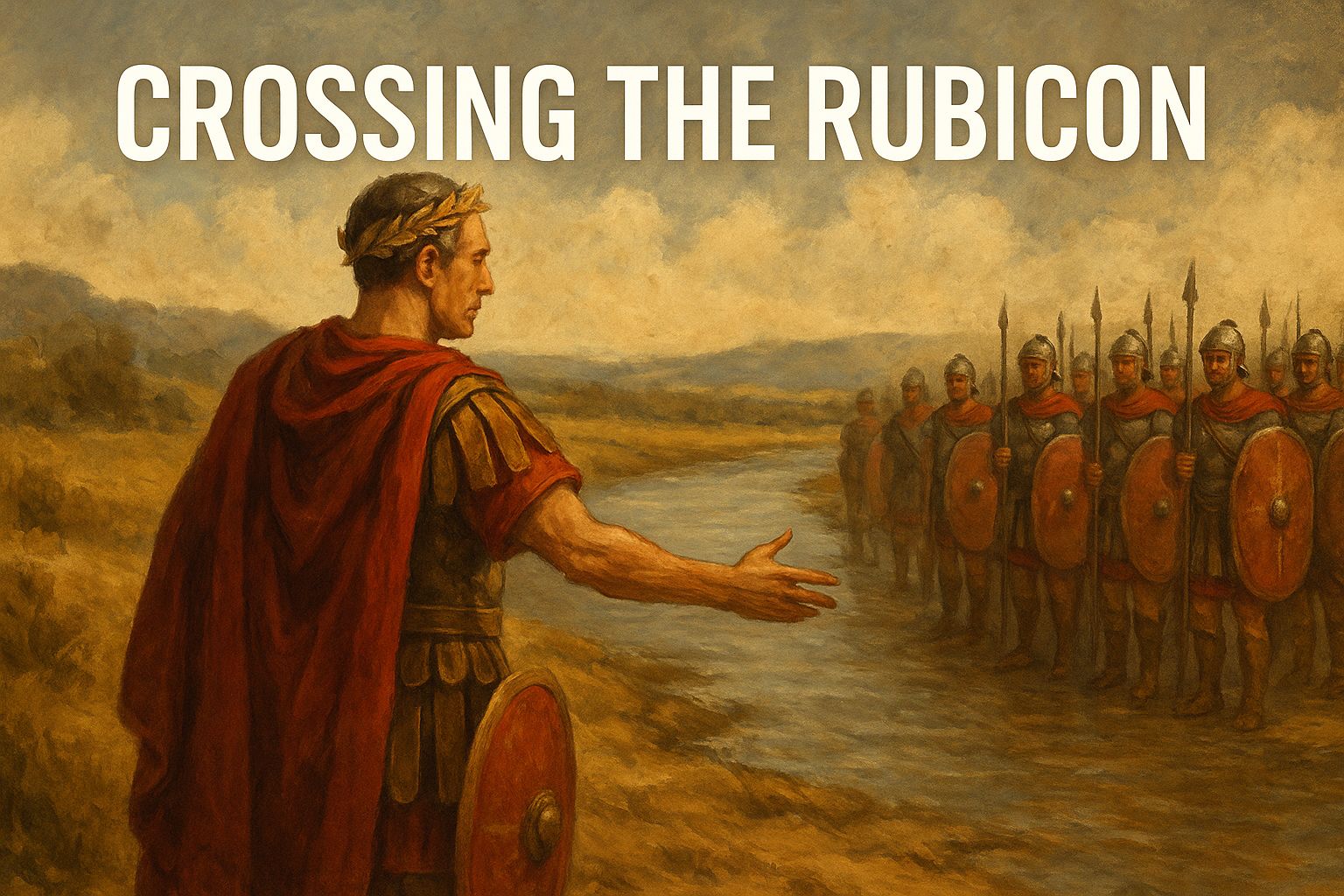Make the Decision
Hey everyone! We’re back again with another lesson from Ancient Times. This week, we’ll be looking at Julius Caesar, a figure whose actions changed the course of human history.
In 49 BCE, Julius Caesar stood with his army at the edge of the Rubicon River, the northern boundary of Italy. He was a successful military commander at the time, and the full trust and support of his men was behind him.
The Senate, led by Caesar’s rival Pompey, had ordered him to disband his legions and return to Rome as a private citizen. If he obeyed, Caesar faced almost certain death or exile if he was lucky.
So he paused. His men waited. He knew that once he crossed, there would be no turning back. As a General, crossing the Rubicon and leading an army of troops into Rome was considered treason. Caesar knew that crossing meant he would be starting a Civil War.
Caesar finally said, “Alea iacta est,” meaning The Die is Cast, and marched across the boundary with his troops.
That single step plunged Rome into a series of bloody Civil Wars that spanned decades and changed the course of history in Europe, Asia, and Northern Africa.
The Lesson
Leadership often comes down to Rubicon moments. Points where safety and comfort lie on one side, and risk and uncertainty on the other. You can spend time analyzing, asking for advice, and planning your next moves, but at some point, you have to make a decision and commit to your plan.
Crossing the Rubicon happens when we make an irreversible decision. It’s the life-changing decisions that we make despite the fear and uncertainty facing us.
A simple question
What is the Rubicon you need to cross in your leadership journey right now—and what’s holding you back from making the decision?
Until next time,
Rick
